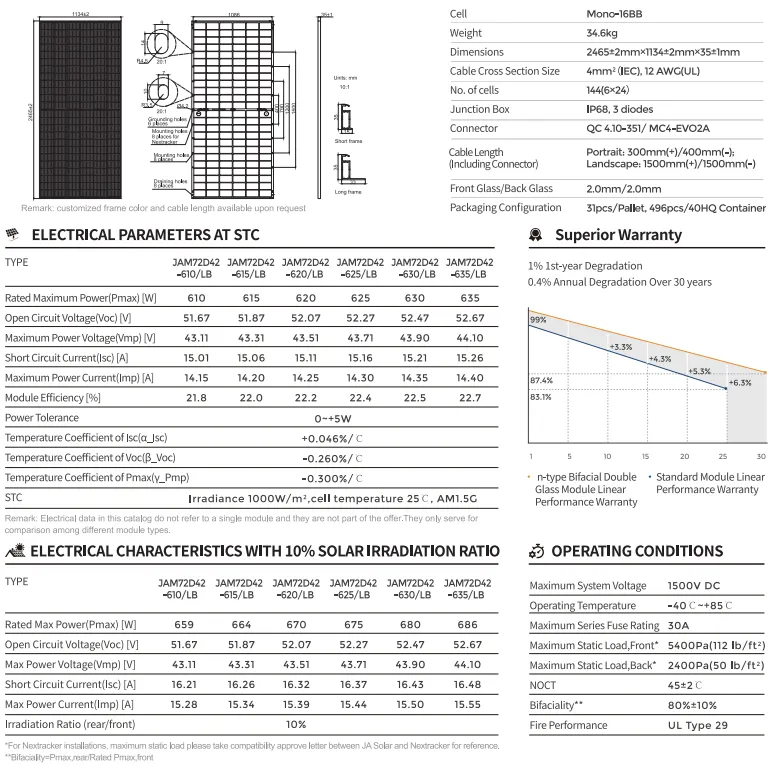Exploring the Benefits and Challenges of Adopting Solar Panels for Home Energy Solutions
Household Solar Panels Empowering Sustainable Living
In recent years, the global shift towards sustainable living has led to a surge in the adoption of household solar panels. These technologies not only offer a means to reduce energy bills but also contribute significantly to environmental sustainability. With decreasing costs and improved efficiency, solar panels have become an accessible option for many households. This article explores the benefits, challenges, and future prospects of household solar panels.
The Benefits of Household Solar Panels
One of the most compelling advantages of solar panels is the reduction in electricity costs. By harnessing energy from the sun, homeowners can generate their own electricity, which can lead to substantial savings over time. Depending on the size of the solar installation and local electricity rates, many households can significantly decrease their monthly energy expenses. Furthermore, in some regions, excess energy produced can be sold back to the grid, providing an additional source of income.
Environmental impact is another crucial benefit of solar energy. Traditional energy sources, such as coal and natural gas, release significant amounts of carbon dioxide and other greenhouse gases into the atmosphere. In contrast, solar energy is clean and renewable, contributing to a reduction in carbon footprints. By installing solar panels, households can play a pivotal role in mitigating climate change and promoting a healthier planet for future generations.
Additionally, household solar panels increase energy independence. As traditional energy markets fluctuate and face disruptions, homeowners with solar panels are less vulnerable to rising energy costs and supply shortages. This independence not only fosters a sense of security but also aligns with the growing trend towards decentralized energy systems.
Challenges in Adoption
household solar panels

Despite the numerous benefits, the adoption of household solar panels is not without its challenges. Initial installation costs can be a significant barrier for many families. Although prices have fallen dramatically over the past decade, investing in solar technology still requires considerable upfront capital. However, various financing options, including loans, leases, and power purchase agreements, have emerged to make solar energy more accessible.
Moreover, the efficiency of solar panels can be influenced by several factors, including geographical location, weather conditions, and the orientation of the roof. Homeowners must evaluate their specific circumstances, potentially conducting a site assessment to determine the feasibility and efficiency of solar panel installation on their property.
Another challenge lies in the regulatory landscape. While many regions offer incentives, such as tax credits and rebates, the specifics can vary widely. Navigating these regulations can be complex for homeowners, necessitating careful research and possibly the help of experts to ensure compliance and maximize benefits.
The Future of Household Solar Panels
The future of household solar panels looks promising. Technological advancements continue to enhance the efficiency and affordability of solar systems. Innovative solutions, such as solar batteries, enable homeowners to store excess energy for use during nighttime or cloudy days, further optimizing solar energy utilization.
As awareness of climate change grows and renewable energy becomes a priority for governments worldwide, policies are increasingly geared towards promoting solar energy adoption. Programs aimed at reducing barriers and incentivizing clean energy deployment are likely to facilitate wider acceptance of household solar systems.
In conclusion, household solar panels represent a powerful tool in the quest for sustainable living. By providing financial savings, reducing environmental impact, and fostering energy independence, they empower homeowners to take an active role in the transition to renewable energy. While challenges remain, the ongoing advancements in technology and supportive policy frameworks herald a bright future for solar energy in homes around the globe. Embracing solar energy is not just an investment in infrastructure; it is a commitment to a sustainable, resilient future.
-
Navigating Off Grid Solar Inverter: From Use Cases to Trusted PartnersNewsAug.05,2025
-
Solar Edge String Inverter: A Wholesaler’s Guide to Inverter Technology SelectionNewsAug.05,2025
-
Microinverters: Revolutionizing Solar Energy UseNewsAug.05,2025
-
Future of Monocrystalline Solar Panel Efficiency: Latest Technological AdvancesNewsAug.05,2025
-
Solar Panels for House: A Complete Guide to Residential Solar EnergyNewsAug.05,2025
-
Panel Bifacial Performance in Snow and Low-Light ConditionsNewsAug.05,2025







